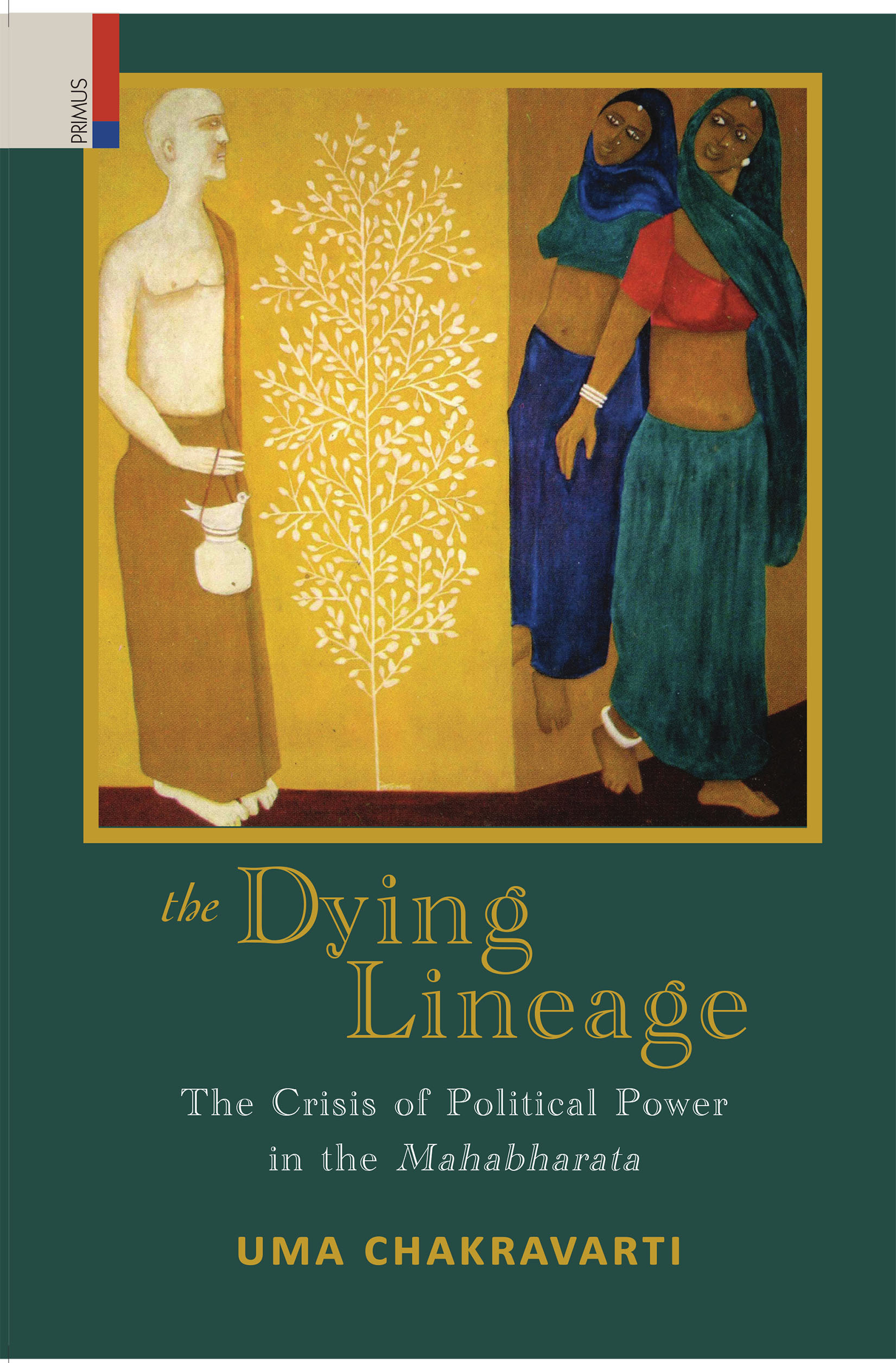The Dying Lineage: The Crisis of Political Power in the Mahabharata by Uma Chakravarti

INFORMATION
- AUTHOR : Uma Chakravarti
- HB ISBN : 978-93-5852-928-9
- Year : 2024
- Extent : 260
- Discount available on checkout
- Usually dispatched within 3 to 5 working days.
The Dying Lineage has at its core the crises of reproduction that underwrite Vyasa’s Mahabharata, a text that best exemplifies the transitional moment from kin-based chiefdoms to monarchical kingdoms in the Indo-Gangetic doab in the mid-first millennium bce. However, lineage building and putting orderly norms of succession into place was a fraught process. The Bharata patriline stared at its imminent extinction at least once every generation, barely perpetuating itself, and always faced with anxiety over its future. This feminist reading ‘peoples’ this story by bringing into its frame those who are on the margins of the royal household but cannot claim kingship. Reading against the grain, the book explores the link between caste, class and gender in a varna-ordered society. It examines how all three colluded with the patriarchs (and the occasional matriarch) to ensure the survival of the lineage. The fallout was the denial of women’s sexual autonomy and the reifying of their wombs to create a field for the seeds of the Bharata men or their proxies. Consequently, an already imperilled and blighted Kuru lineage is torn asunder by fratricidal contradictions, leading to death and destruction, and the end of an era.
The Author
Uma Chakravarti taught history in Miranda House, University of Delhi from 1966 to 1998. She has also taught women’s studies courses at the Mahatma Gandhi University, Wardha and at the Institute of Women’s Studies, Lahore. She has held the Ingalls Fellowship at Harvard University, the J.P. Naik Fellowship at the Centre for Women’s Development Studies and was the National Professor at the ICHR from 2012 to 2014. Uma Chakravarti writes on Buddhism, early Indian history, the nineteenth century and the present with a special focus on gender, caste, and class. Among her publications are The Social Dimensions of Early Buddhism (1987), Rewriting History: The Life and Times of Pandita Ramabai (1998), Gendering Caste: Through a Feminist Lens (2004), Everyday Lives, Everyday Histories: Beyond the Kings and Brahmanas of ‘Ancient’ India (2006); and On the Social Philosophy of Buddhism: Four Essays (2015). She has edited Thinking Gender Doing Gender (2013), and Delhi Riots: Three Days in the Life of a Nation (with Nandita Haskar, 1987).




